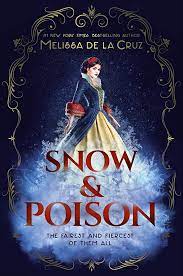[button color=”black” size=”big” link=”http://affiliates.abebooks.com/c/99844/77798/2029?u=http%3A%2F%2Fwww.abebooks.com%2Fservlet%2FSearchResults%3Fisbn%3D9781585677467″ target=”blank” ]Purchase here[/button]
This 1930 short-story collection, entirely devoted to the hilarious adventures of Bertie Wooster and his “private gentleman’s gentleman” Jeeves, was the third book of its kind, according to the author’s foreword, which names The Inimitable Jeeves and Carry On, Jeeves as its predecessors. The foreword also helpfully provides a script, both in English and in French, for how to ask your friendly neighborhood bookseller to sell you the book.
The stories themselves (eleven of them) had previously been published separately in American and British magazines. Nevertheless, they are so united by a common cast of characters that they almost, between them, form a novel. A novel in which playboy Bertie and his brainy valet are always getting in and out of ridiculous scrapes with battleaxe aunts, dotty uncles, horrid cousins, frisky damsels, and the occasional dog or infant. Jeeves extends his services to such of Bertie’s friends and clubfellows as have names like Bingo, Sippy, and Tuppy.
In these tales, Bertie gets the worst in a duel of pranks, evens the odds in a bet over which of two boys will be the best behaved, helps a pal escape the clutches of his wife’s nutritionist friend, and dabbles with breaking into a girls’ school (for the best of reasons, of course). Whether the problem has to do with a dog, a car accident, a painting, or a vase, Jeeves proves himself to be the man with the answers—though his poor master sometimes squirms a bit before he accepts his medicine. Somehow, the cure quite often involves sudden departures by boat, ship, or train. Such are the hazards of being a flighty playboy with a cool-headed servant who always knows which side the crumpet is buttered on.
These tales have the light, tickling froth of a flute of champagne, often with the additional tartness of a particularly dry vintage. A good part of my enjoyment of them came from the late Jonathan Cecil‘s tour-de-force of audio-book reading. But as the series’ special blend of offbeat characters, silly situations, and Bertie’s daffy, what-ho-old-schoolmate style of narration grows more familiar, I find it easier to understand why at least one of my friends re-reads his Wodehouse regularly. Even as the world of Jeeves and Wooster becomes as comfortable as a well-worn easy-chair, the laughs remain reliable, frequent and hearty.


